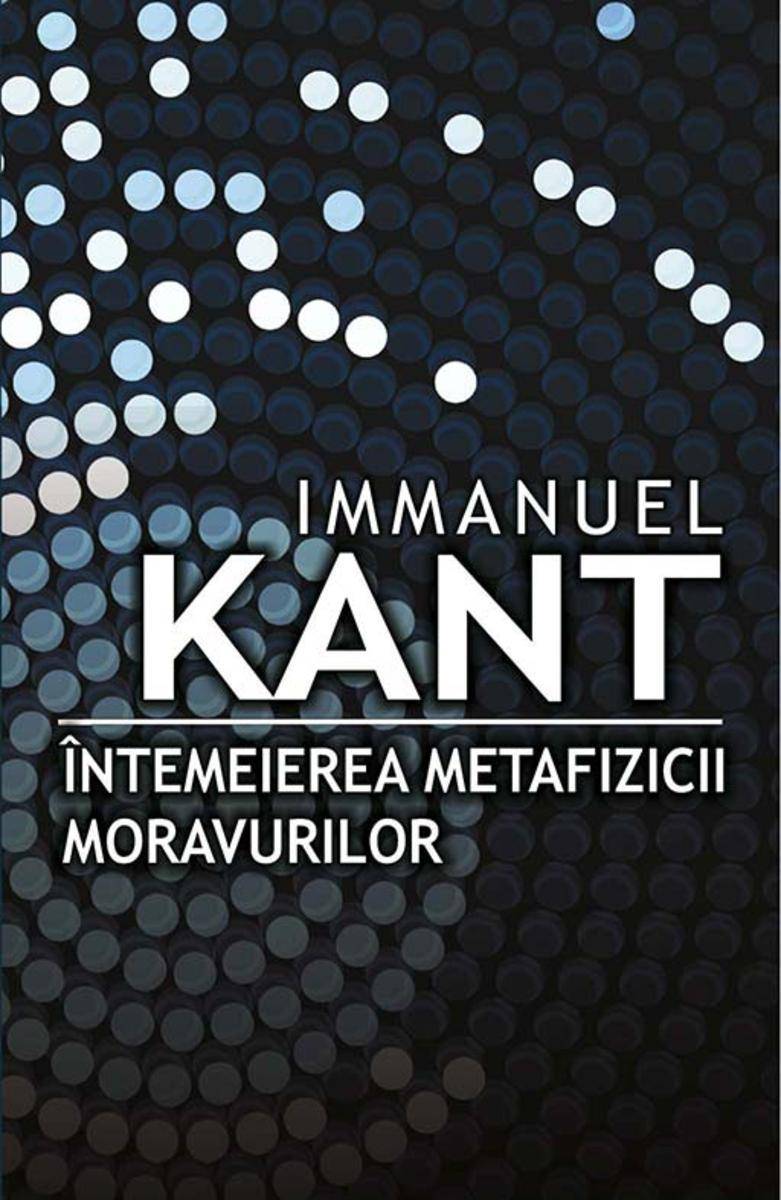
?ntemeierea metafizicii moravurilor
¥16.27
Pedagogii alternative ofer? o prezentare clar? ?i cuprinz?toare a ?ase metode pedagogice – Pedagogia Montesorri, Pedagogia Waldorf, Pegadogia curativ?, Pedagogia Freinet, Planul Jena, Programul step-by-step. Fiecare metod? pedagogic? este descris? ?n c?te un capitol. Astfel, capitolele au o structur? elegant?, care urm?re?te redarea principalelor aspecte legate de respectiva pedagogie. Cartea este deschis? de o introducere ?i include, la final, concluzii, dar ?i o bibliografie, util?, f?r? doar ?i poate, pentru oricine ar dori s? aprofundeze chestiunile analizate ?n fiecare capitol. Con?inutul capitolelor este adaptat ?n func?ie de metoda pedagogic? descris?. Concep?ia pedagogic?, perspectiva privind dezvoltarea copilului, metoda sau metodele de predare, ?nv??are ?i evaluare, rela?ia profesorului (?nv???torului) cu elevii sau rela?ia ?colii cu p?rin?ii sunt printre elementele abordare ?n cadrul fiec?rei pedagogii.Cartea se ocup? doar de c?teva pedadogii alternative dintr-o multitudine de sisteme educative concepute ?n ultimele secole. Cele ?ase metode pot fi ?ncadrate ?n curentul pedagogic ,,educa?ia nou?“, fiind elaborate ?n primele decenii ale secolului XX. Ele ofer? solu?ii ?i concep?ii diferite privind educa?ia copilului, alternative la modelul clasic, al pedagogului ceh Jan-Amos Comenius (secolul al XVII-lea), care prevede gruparea elevilor pe clase, cu elevi de aproximativ aceea?i v?rst?, ?i structurarea con?inutului pe discipline, repartizate pe ani de studiu ?i cicluri. Autorul ?ncearc? s? demonstreze c? aceste pedagogii alternative sunt complementare ?i diversitatea metodelor poate asigura valorificarea calit??ilor elevilor.Aceast? lucrare le este destinat? studen?ilor care urmeaz? specializ?ri din domeniul ??tiin?ele Educa?iei“, dar ?i cadrelor didactice interesate de teoria ?i practica alternativelor educa?ionale ?nt?lnite ?n ?ara noastr? ?i, nu ?n ultimul r?nd, p?rin?ilor interesa?i de un rol mai activ ?n educarea copiilor lor. Am c?utat s? prezent?m ?n paginile sale concepte de baz?, principii de ac?iune, strategii ?i tehnici de lucru specifice, care se pot constitui ?n repere de g?ndire ?i ac?iune pedagogic?. (p. 13)

PARENTING GUIDE: Teach Your Kids About Chores
¥17.66
PARENTING GUIDE: Teach Your Kids About Chores
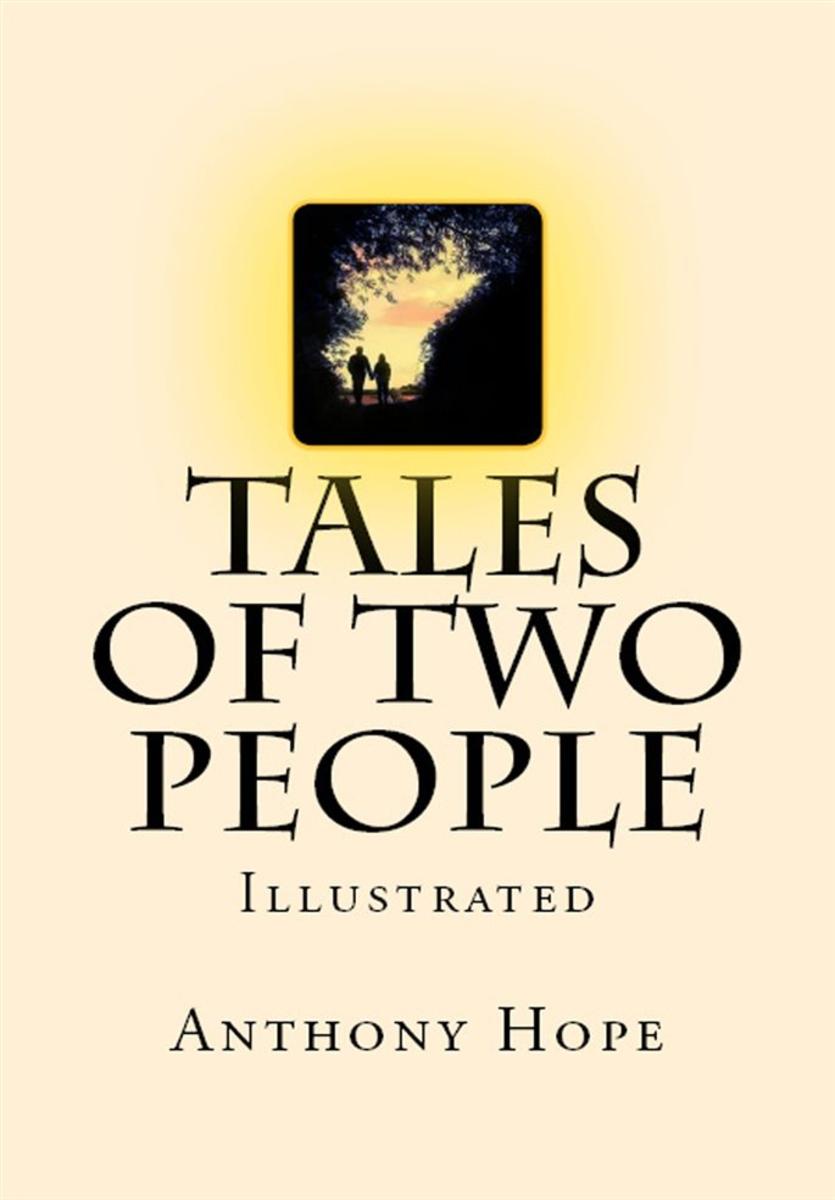
Tales of Two People
¥18.56
COMMON opinion said that Lord Lynborough ought never to have had a peerage and forty thousand a year; he ought to have had a pound a week and a back bedroom in Bloomsbury. Then he would have become an eminent man; as it was, he turned out only a singularly erratic individual. So much for common opinion. Let no more be heard of its dull utilitarian judgments! There are plenty of eminent men—at the mo-ment, it is believed, no less than seventy Cabinet and ex-Cabinet Ministers (or thereabouts)—to say nothing of Bishops, Judges, and the British Academy—and all this in a nook of the world! (And the world too is a point!) Lynborough was something much more un-common; it is not, however, quite easy to say what. Let the question be postponed; perhaps the story itself will answer it. He started life—or was started in it—in a series of surroundings of unimpeachable orthodoxy—Eton, Christ Church, the Grenadier Guards. He left each of these schools of mental culture and bodily discipline, not under a cloud—that metaphor would be ludicrously inept—but in an explosion. That, having been thus shot out of the first, he managed to enter the second—that, having been shot out of the second, he walked placidly into the third—that, having been shot out of the third, he suffered no apparent damage from his repeated propulsions—these are matters explicable only by a secret knowledge of British institutions. His father was strong, his mother came of stock even stronger; he himself—Ambrose Caverly as he then was—was very popular, and extraordinarily handsome in his unusual outlandish style. His father being still alive—and, though devoted to him, by now apprehensive of his doings—his means were for the next few years limited. Yet he contrived to employ himself. He took a soup-kitchen and ran it; he took a yacht and sank it; he took a public-house, ruined it, and got himself severely fined for watering the beer in the Temperance interest. This injustice rankled in him deeply, and seems to have permanently influenced his development. For a time he forsook the world and joined a sect of persons who called themselves “Theophilanthropists”—and surely no man could call himself much more than that? Returning to mundane affairs, he refused to pay his rates, stood for Parliament in the Socialist interest, and, being defeated, declared himself a practical follower of Count Tolstoy. His father advising a short holiday, he went off and narrowly escaped being shot somewhere in the Balkans, owing to his having taken too keen an interest in local politics. (He ought to have been shot; he was clear—and even vehement—on that point in a letter which he wrote to The Times.) Then he sent for Leonard Stabb, disappeared in company with that gentleman, and was no more seen for some years.

The Sunshade
¥18.56
AFTER the brilliant success which attended, in the spring of last year, our volume on The Fan—a success which was the result, as I cannot conceal from myself, much more of the original conception and decorative execution of that work of luxe than of its literary interest—I have determined to close this series of Woman's Ornaments by a last little work on the protective adornments of that delicate being, as graceful as she is gracious: THE SUNSHADE, the Glove, the Muff. This collection, therefore, of feminine toys will be limited to two volumes, a collection which at first sight appeared to us so complex and heavy that a dozen volumes at least would have been required to contain its principal elements. This, doubtless, on the one hand, would have tried our own constancy, and on the other, would have failed in fixing more surely the inconstancy of our female readers. THE spirit has its freaks of independence, and the unforeseen of life ought to be carefully economised. Moreover, to tell the whole truth, the decorative elegance of a book like the present hides very often beneath its prints the torture of an intellectual thumbscrew.
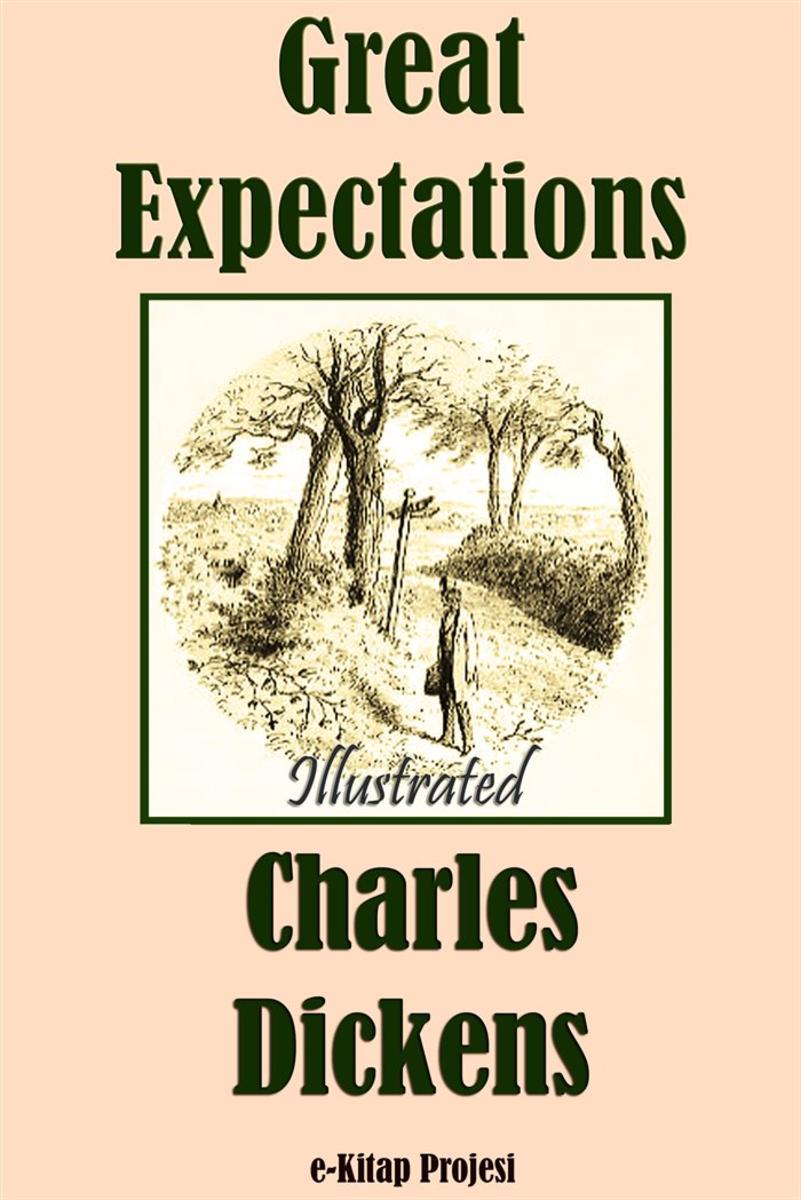
Great Expectations
¥18.74
IT was Christmas Eve. I remember it just as if it was yesterday. The Colonel had been pretending not to notice it, but when Drinkwater Torm knocked over both the great candlesticks, and in his attempt to pick them up lurched over himself and fell sprawling on the floor, he yelled at him. Torm pulled himself together, and began an explanation, in which the point was that he had not "teched a drap in Gord knows how long," but the Colonel cut him short."Get out of the room, you drunken vagabond!" he roared. Torm was deeply offended. He made a low, grand bow, and with as much dignity as his unsteady condition would admit, marched very statelily from the room, and passing out through the dining-room, where he stopped to abstract only one more drink from the long, heavy, cut-glass decanter on the sideboard, meandered to his house in the back-yard, where he proceeded to talk religion to Charity, his wife, as he always did when he was particularly drunk. He was expounding the vision of the golden candlestick, and the bowl and seven lamps and two olive-trees, when he fell asleep. The roarer, as has been said, was the Colonel; the meanderer was Drinkwater Torm. The Colonel gave him the name, "because," he said, "if he were to drink water once he would die."As Drinkwater closed the door, the Colonel continued, fiercely:"Damme, Polly, I will! I'll sell him to-morrow morning; and if I can't sell him I'll give him away."Polly, with troubled great dark eyes, was wheedling him vigorously. "No; I tell you, I'll sell him.—'Misery in his back!' the mischief! he's a drunken, trifling, good-for-nothing nigger! and I have sworn to sell him a thousand—yes, ten thousand times; and now I'll have to do it to keep my word."

The Marvelous Land of Oz: "Illustrated Edition"
¥18.74
To love your wife is good; to love your State is good, too.But if it comes to a question of survival, you have to love one better than the other. Also, better than yourself. It was simple for the enemy; they knew which one Aron was dedicated to....The thunder of the jets died away, the sound drifting wistfully off into the hills. The leaves that swirled in the air returned to the ground slowly, reluctantly.The rocket had gone. Aron Myers realized that he was looking at nothing. He noticed that his face was frozen into a meaningless smile. He let the smile slowly dissolve as he turned to look at his wife. She was a small woman, and he realized for the first time how fragile she was. Her piquant face, framed by long brown, flowing hair, was an attractive jewel when set on the plush cushion of civilization. Now her face, set in god-forsaken wilderness, metamorphosed into the frightened mask of a small animal. They were alone. Two human beings alone on this wild, lonely planet. Aron's mind suddenly snapped from that frame of reference—his subjective view of their position—to the scale of galaxies. It was a big planet to them, but it was a marble in the galaxy that man had discovered and claimed, and was now fighting with himself to retain. This aggregate of millions of pebbles was wracked with the violence of war, where marbles were more expendable than the microbes that dwelt on them.The two walked hand in hand away from the meadow where the ship had been. The feeble wind snuffled at the scraps of paper and trash, the relics of man's passing.They walked up the hill to their station, the reason for their being on this wayside planet.
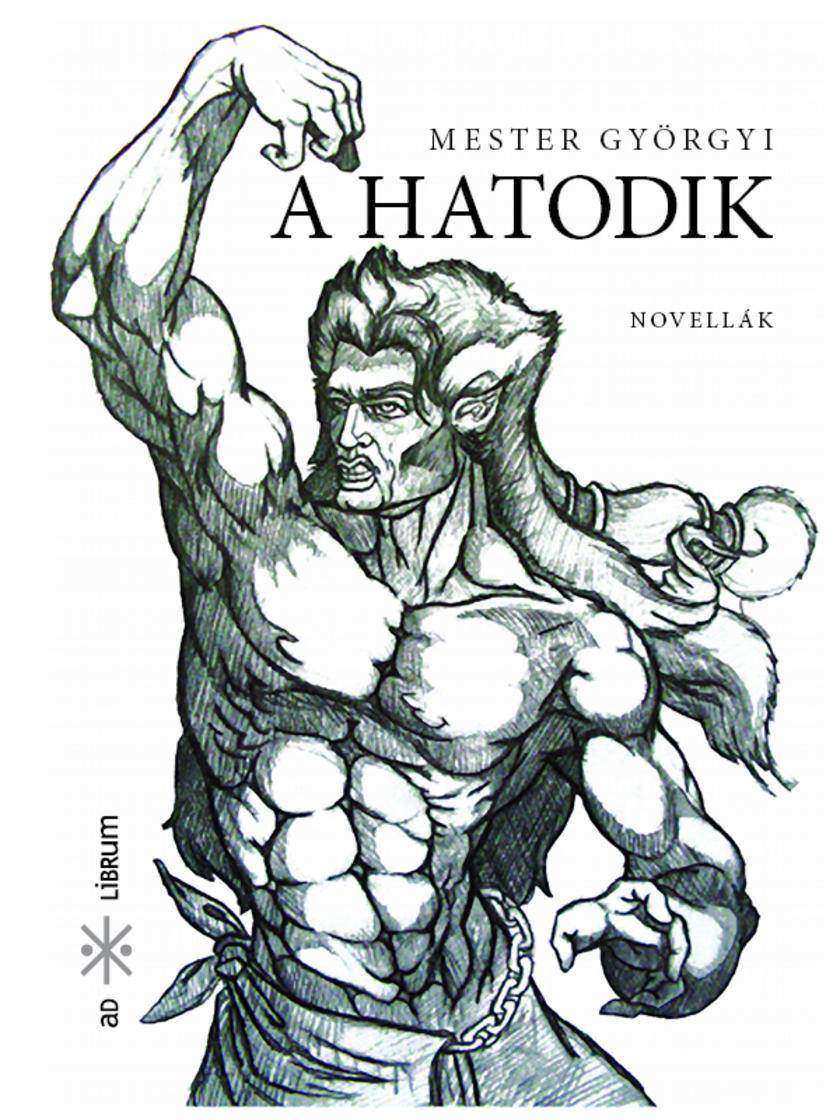
A hatodik: Novellák
¥19.87
Mikor mondhatjuk, hogy kapcsolatunk kiegyensúlyozott a gyerekünkkel? Ha minden kérésünket szó nélkül teljesíti? Ha nem dacol, és az iskolában sincs rá panasz? De mi t?rténik, ha egy nap rossz jegyet hoz haza, ha duzzogva kivonja magát a házimunkából, ha nem tartja be nekünk tett ígéretét, s?t nem mond igazat? Akkor kevésbé fogjuk szeretni? Alfie Kohn, a gyermeknevelés elismert szakért?je határozottan állítja, hogy a kérdés komolyabb, mint el?sz?r gondolnánk. A gyermekek jelent?s részének komoly szorongást okoz, ha úgy érzi, nem ? maga, hanem a viselkedése számít. Mindegy, hogy büntetünk vagy jutalmazunk, az üzenet ugyanaz: csak akkor állunk ki mellette, ha azt csinálja, amit elvárunk t?le. Holott minden gyereknek alapvet? és legfontosabb igénye, hogy a szülei feltétel nélkül szeressék! Akkor is, ha nem fogad szót. Akkor is, ha csúnyán beszél, verekszik, vagy egyszer?en csak lustálkodni szeretne tanulás helyett… A Szül?k feltétel nélkül állításait komoly kutatások támasztják alá, és rengeteg gyakorlati tanáccsal látja el a hagyományos fegyelmezés ?rd?gi k?réb?l kit?rni vágyó szül?ket. Kerüljünk k?zelebb gyermekeinkhez! Ha nem rekesztjük ki ?ket saját életükb?l, ha engedjük ?ket d?nteni, és azt is tiszteletben tartjuk, ha d?ntéseik ellentétesek a mieinkkel, egy napon észre fogjuk venni, hogy már nemcsak terelgetjük ?ket – hanem együtt haladunk velük.Alfie Kohn Amerika-szerte ismert szakért?, tizennégy gyermeknevelési k?nyv szerz?je, egyetemek és konferenciák népszer? el?adója, televíziós m?sorok visszatér? vendége. A hagyományos, büntetésen és jutalmazáson alapuló nevelés legnagyobb kritikusa, akinek k?nyveit húsz nyelvre fordították le. Maga is gyakorló szül?, feleségével és két gyerekével Bostonban él.

The Home Workout Plan for Seniors:How to Master Chair Exercises in 30 Days
¥23.14
Are you concerned about your balance, building strength and maintaining independence? Wouldn’t it be nice having a simple step-by-step exercise plan to do on your own at home? Most importantly, won’t you have a better piece of mind knowing it’s a safe and proven fitness routine specifically for senior citizens? Then, The Home Workout Plan: How to Master Chair Exercises in 30 Days has your answer in a short, concise book you can read in less than an hour. That way you can get your information, exercise today and maintain a great quality of life! In this health and fitness short read, you’ll get: -34 seated exercises with additional modifications -Exercises ideal for the unconditioned to the active senior -Brief and straightforward instructions of each exercise -A reliable and tested 30-day workout plan -Helpful guidelines and tips to get the most from your workouts -Over 34 full-color pictures for a better understanding -And, so much more! Get Your Copy Today!
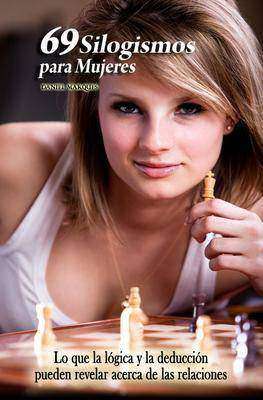
69 silogismos para Mujeres: Lo que la lógica y la deducción pueden revelar acerc
¥23.30
69 silogismos para Mujeres: Lo que la lógica y la deducción pueden revelar acerca de las relaciones

Alpha Female: Why Men Cheat and How to Prevent it
¥23.30
Alpha Female: Why Men Cheat and How to Prevent it
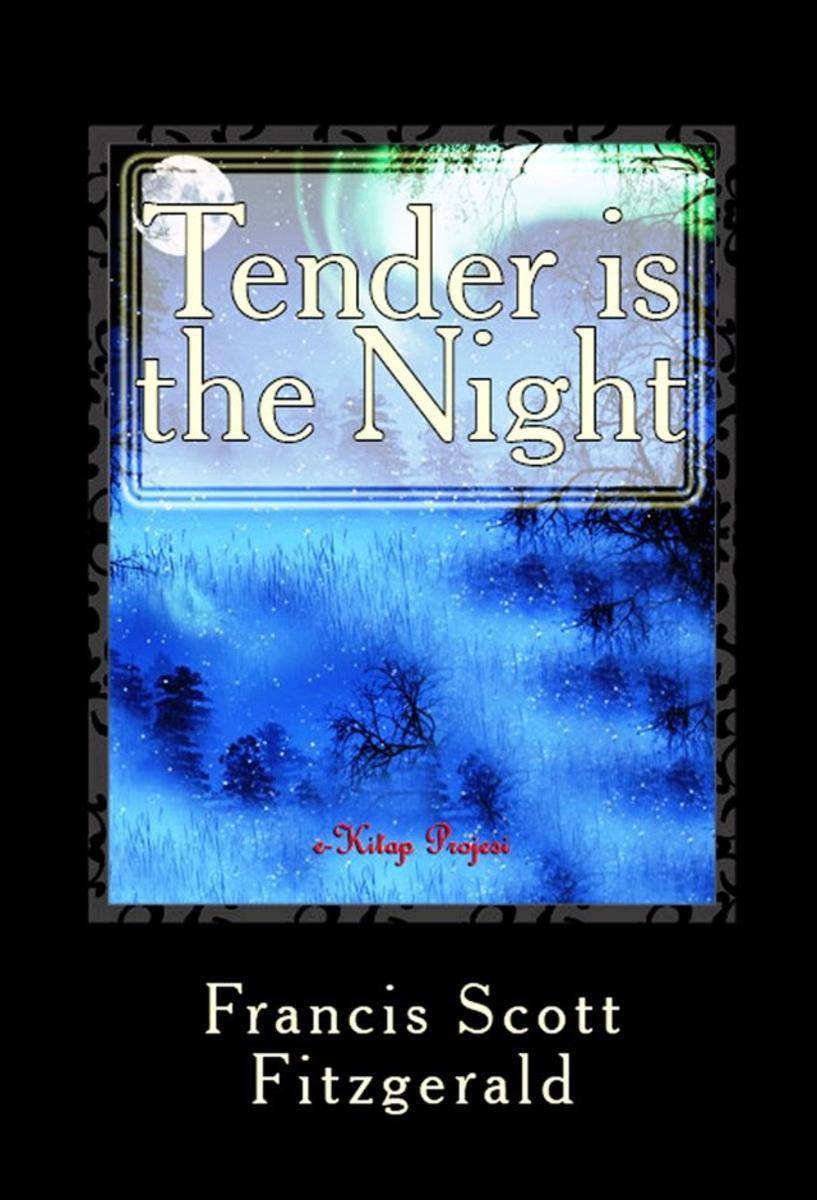
Tender is the Night
¥23.30
Tender Is the Night is a novel by American writer F. Scott Fitzgerald. It was his fourth and final completed novel, and was first published in Scribner's Magazine between January and April 1934 in four issues. The title is taken from the poem "Ode to a Nightingale" by John Keats. In 1932, Fitzgerald's wife Zelda Sayre Fitzgerald was hospitalized for schizophrenia in Baltimore, Maryland. The author rented the La Paix estate in the suburb of Towson to work on this book, the story of the rise and fall of Dick Diver, a promising young psychoanalyst, and his wife, Nicole, who is also one of his patients. It was Fitzgerald's first novel in nine years, and the last that he would complete. The book reveals the detrimental days of Fitzgerald's past as he lives out his last remaining years with his wife, Zelda. The novel almost mirrors the events that take places as characters are pulled and put back into mental care, and the male figure, Dick Diver, starts his descent into alcoholism. While working on the book, several times he ran out of cash and had to borrow from his editor and agent and write short stories for commercial magazines. The early 1930s, when Fitzgerald was conceiving and working on the book, were the darkest years of his life and, accordingly, the novel has its very bleak elements that he experienced himself. On the pleasant shore of the French Riviera, about half way between Marseilles and the Italian border, stands a large, proud, rose-colored hotel. Deferential palms cool its flushed fa?ade, and before it stretches a short dazzling beach. Lately it has become a summer resort of notable and fashionable people; a decade ago it was almost deserted after its English clientele went north in April. Now, many bungalows cluster near it, but when this story begins only the cupolas of a dozen old villas rotted like water lilies among the massed pines between Gausse's H?tel des ?trangers and Cannes, five miles away. The hotel and its bright tan prayer rug of a beach were one. In the early morning the distant image of Cannes, the pink and cream of old fortifications, the purple Alp that bounded Italy, were cast across the water and lay quavering in the ripples and rings sent up by sea-plants through the clear shallows. Before eight a man came down to the beach in a blue bathrobe and with much preliminary application to his person of the chilly water, and much grunting and loud breathing, floundered a minute in the sea. When he had gone, beach and bay were quiet for an hour. Merchantmen crawled westward on the horizon; bus boys shouted in the hotel court; the dew dried upon the pines. In another hour the horns of motors began to blow down from the winding road along the low range of the Maures, which separates the littoral from true Proven?al France.A mile from the sea, where pines give way to dusty poplars, is an isolated railroad stop, whence one June morning in 1925 a victoria brought a woman and her daughter down to Gausse's Hotel. The mother's face was of a fading prettiness that would soon be patted with broken veins; her expression was both tranquil and aware in a pleasant way. However, one's eye moved on quickly to her daughter, who had magic in her pink palms and her cheeks lit to a lovely flame, like the thrilling flush of children after their cold baths in the evening. Her fine forehead sloped gently up to where her hair, bordering it like an armorial shield, burst into lovelocks and waves and curlicues of ash blonde and gold. Her eyes were bright, big, clear, wet, and shining, the color of her cheeks was real, breaking close to the surface from the strong young pump of her heart. Her body hovered delicately on the last edge of childhood—she was almost eighteen, nearly complete, but the dew was still on her. As sea and sky appeared below them in a thin, hot line the mother said:"Something tells me we're not going to like this place.""I want to go home anyhow," the girl answered. ? ABOUT AUTHOR: ? F. Scott Fitzgerald was one of the major American writers of the twentieth century -- a figure whose life and works embodied powerful myths about our national dreams and aspirations. Fitzgerald was talented and perceptive, gifted with a lyrical style and a pitch-perfect ear for language. He lived his life as a romantic, equally capable of great dedication to his craft and reckless squandering of his artistic capital. He left us one sure masterpiece, The Great Gatsby; a near-masterpiece, Tender Is the Night; and a gathering of stories and essays that together capture the essence of the American experience. His writings are insightful and stylistically brilliant; today he is admired both as a social chronicler and a remarkably gifted artist.

Whole Lotta Love
¥24.44
Félelem helyett bizalom. Versengés helyett együttm?k?dés. Hogyan alakul át társadalmi-gazdasági k?rnyezetünk, mik a kihívások, mik a lehet?ségek? Mit jelent a tanulás a digitális korban? Mit jelent a karrier? Milyen szervezeti formákban zajlik a munka, milyen emberi min?ségeket keresnek a cégek?

Adventures of Sherlock Holmes: (Illustrated)
¥24.44
". . . aphorism are seldom couched in such terms, that they should be taken as they sound precisely, or according to the widest extent of signification; but do commonly need exposition, and admit exception: otherwise frequently they would not only clash with reason and experience, but interfere, thwart, and supplant one another." ? ? ? ? Issac Barrow "The very essence of an aphorism is that slight exaggeration which makes it more biting whilst less rigidly accurate." ? ? ? ?—Leslie Stephen There are of course, girls and girls; yet at heart they are pretty much alike. In age, naturally, they differ wildly. But this is a thorny subject. Suffice it to say that all men love all girls-the maid of sweet sixteen equally with the maid of untold age. There is something exasperatingly something-or-otherish about girls. And they know it—which makes them more something-or-otherish still:—there is no other word for it. A girl is a complicated thing. It is made up of clothes, smiles, a pompadour, things of which space and prudence forbid the enumeration here. These things by themselves do not constitute a girl which is obvious; nor is any one girl without these things which is not too obvious. Where the things end and the girl begins many men have tried to find out. Many girls would like to be men—except on occasions. At least so they say, but perhaps this is just a part of their something-or-otherishness. Why they should want to be men, men cannot conceive. Men pale before them, grow hot and cold before them, run before them (and after them), swear by them (and at them), and a bit of a chit of a thing in short skirts and lisle-thread stockings will twist able-bodied males round her little finger.It is an open secret that girls are fonder of men than they are of one another—which is very lucky for the men. Girls differ; and the same girl is different at different times. When she is by herself, she is one thing. When she is with other girls she is another thing. When she is with a lot of men, she is a third sort of thing. When she is with a man. . . But this baffled even Agur the son of Jakeh.As a rule, a man prefers a girl by herself. This is natural. And yet is said that you cannot have too much of a good thing. If this were true, a bevy of girls would be the height of happiness. Yet some men would sooner face the bulls of Bashan.Some foolish men—probably poets—have sought for and asserted the existence of the ideal girl. This is sheer nonsense: there is no such thing. And if there were, she could not compare with the real girl, the girl of flesh and blood—which (as some one ought to have said) are excellent things in woman. Other men, equally foolish, have regarded girls as playthings. I wish these men had tried to play with them. They would have found that they were playing with fire and brimstone. Yet the veriest spit-fire can be wondrous sweet.Sweet? Yes. On the whole a girl is the sweetest thing known or knowable. On the 6 whole of this terrestrial sphere Nature has produced nothing more adorable than the high-spirited high-bred girl.—Of this she is quite aware—to our cost (I speak as a man). The consequence is, her price has gone up, and man has to pay high and pay all sorts of things—ices, sweets, champagne, drives, church-goings, and sometimes spot-cash.

Three Best Friends
¥24.44
Max and his two best friends, Sophia and Max, are excited that a new community playground is opening up. They have not played together in a playground since meeting in preschool. The ribbon is cute and Max suddenlty cries out, " My wheelchair is stuck in the wood chips." Feeling humiliated that Max can't play with his friends, ?he struggles to find a way to belong despite being bullied by two kids. Max learns the true meaning of friendship as fathoms on why playgrounds are built for not all children with abilities.?
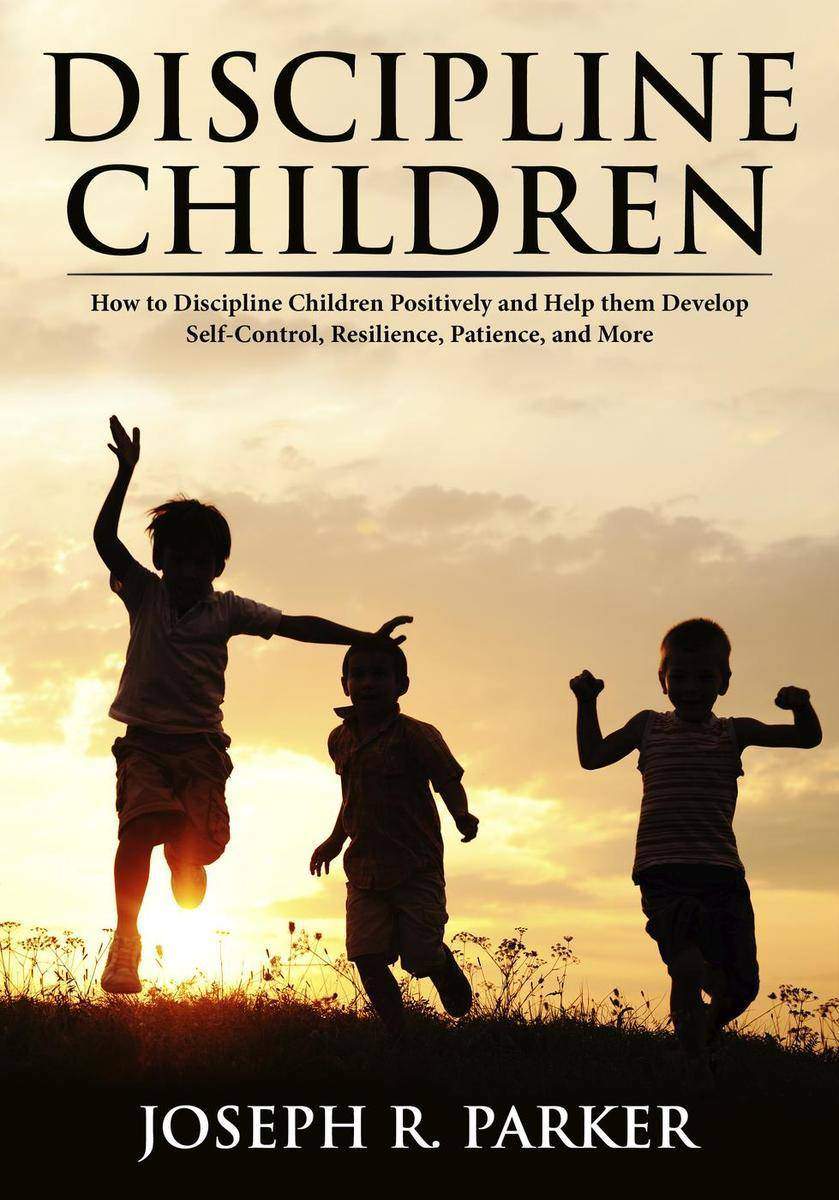
Discipline Children
¥24.44
Have you wondered if you're making the right decisions when it comes to raising your child? Over the last years, there has been a lot of confusion about the role of boys and girls in our society. It's easy to see why parents are left with lots of unanswered questions when they're raising their children.Using positive discipline methods can significantly help them become responsible and balanced adults later in life.Here's some of what you can expect to learn inside the pages of this book: ·Learn how to avoid common discipline mistakes that parents make that can end up harming their child's development in the long-term. ·Setting healthy boundaries that your kids will always respect. ·Learn the best methods to handle conflicts and arguments. ·Effective communication with yout child or teenager. ·Teaching self-control, handling aggressive behaviors, and more! Would you like to enjoy going through every stage of your child's development without worrying if you're doing the right thing or not?The earlier you manage to give proper guidance, the easier it is for them to grow into healthier adults.However, there is no such thing as being too late, and even the most damaging of behaviors and habits can be helped.Do not leave anything to chance. Start by guiding them towards the best possible path towards a healthy and responsible adulthood today!

The Rules of Love: The Truth about Compassion, Attraction and Romance
¥24.44
The Rules of Love: The Truth about Compassion, Attraction and Romance

How to be a Lion: …and get all the hot females in the entire jungle
¥24.44
How to be a Lion: …and get all the hot females in the entire jungle

Alpha Woman: How to Get a Man, Keep Him and Make Him Fall In Love
¥24.44
Alpha Woman: How to Get a Man, Keep Him and Make Him Fall In Love

Amor: A din?mica das emo??es nos relacionamentos
¥24.44
Amor: A din?mica das emo??es nos relacionamentos

Amor: A din?mica do fim dos relacionamentos
¥24.44
Amor: A din?mica do fim dos relacionamentos

Living With Aspergers Syndrome
¥24.44
Living With Aspergers Syndrome




 购物车
购物车 个人中心
个人中心



